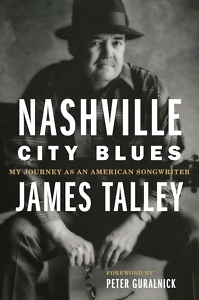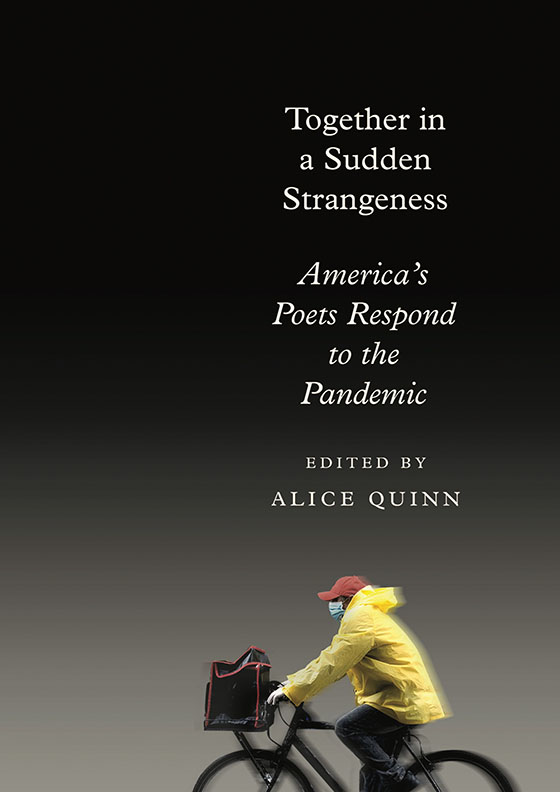Working for a Living
Songwriter James Talley tells his own story in Nashville City Blues
James Talley’s Nashville City Blues: My Journey as an American Songwriter is too evenhanded to be a cautionary tale about the dark corners of the big-city music business, but this is a songwriter’s memoir with a moral in tow.
 In the mid-1970s in Nashville, Talley cut a series of albums that drew from Western swing, rock ‘n’ roll, blues, and folk while remaining — at least on the surface — country music. His 1975 debut album, Got No Bread, No Milk, No Money, But We Sure Got a Lot of Love, appeared during an era when Nashville’s music industry struggled through an identity crisis brought on by the ascendency of rock and the influence of tunesmiths like Bob Dylan and Guy Clark on country songwriting.
In the mid-1970s in Nashville, Talley cut a series of albums that drew from Western swing, rock ‘n’ roll, blues, and folk while remaining — at least on the surface — country music. His 1975 debut album, Got No Bread, No Milk, No Money, But We Sure Got a Lot of Love, appeared during an era when Nashville’s music industry struggled through an identity crisis brought on by the ascendency of rock and the influence of tunesmiths like Bob Dylan and Guy Clark on country songwriting.
Nashville City Blues tells the story of an innovator who writes about working for a living, a subject Talley knows well and one he doesn’t sentimentalize. As he discovered when he began building his career, a certain kind of work — promoting an image of yourself— starts after you’ve already finished making the music.
Nashville City Blues shifts into high gear when Talley moves to Nashville in 1968, when he was 24, but he grounds the story of his encounters with Music City U.S.A. in the varying locales of his childhood and adolescence in the war economy of the 1940s. Talley was born in Tulsa, Oklahoma, and his parents moved to Washington state in search of work. His father got a job as a chemical handler at a nuclear reactor, the Hanford Works, and Talley’s mother — he describes her as “aloof and abrupt” — taught school and considered herself upwardly mobile.
The family ultimately settled in Albuquerque, New Mexico, in 1952, and Talley recalls his years in the city as a period of discovery. By the time he was a high school senior, he had formed his own group modeled after The Kingston Trio. “We all played guitars, wore striped shirts, and sang all the Kingston Trio’s songs at school assemblies. We called ourselves the Ivy Three,” Talley writes. He immersed himself in folk music and art and rode horses at a scout ranch in the summers. After he graduated from the University of New Mexico, he returned to Albuquerque, where he joined a construction crew charged with setting concrete culverts for Interstate 40, only to be thwarted by rain. Talley describes the scene with the flair that characterizes his best songs:
It had rained hard again the night before. We looked at one another and thought about the ridiculousness of the job, with no power, the drunken superintendent, and another day of wading in the mud. We decided we’d had enough. We turned the car around and headed back through Albuquerque, then up into the Manzano Mountains to the little lake at Manzano and went fishing.
By the time he drove into Tennessee in a 1949 Willys panel truck, country songwriting had undergone a sea change at least partly caused by the shock of hearing Bob Dylan’s 1966 album Blonde on Blonde, recorded in Nashville. Talley’s subsequent career — he made four superb albums for Capitol Records between 1973 and 1977 and continues to release albums until the present day — has played out as an example of an ambitious songwriter and singer bending the forms of country, folk, and rock in the context of Nashville, which always looks for hits.
Along the way, Talley met with the great country-folk songwriter Billy Edd Wheeler, who listened to the songs Talley had been writing about working-class life. (Talley was a welfare caseworker in Albuquerque and later supported himself in Nashville as part of the city’s rat-control effort). “Well, I feel like I have been listening to sociology here,” Wheeler commented. “I don’t know what we could do with these songs in Nashville.”
Talley recounts his complex dealings with record-business executives and self-proclaimed business managers in unsparing fashion. His supporters included Atlantic Records executive Jerry Wexler, who signed Talley to a deal with Atlantic three years before Talley’s debut album appeared on Capitol. His string of Capitol albums got praise from rock critics Robert Christgau and Greil Marcus, and each album bears down on bedrock American music, with 1976’s Tryin’ Like the Devil showing a strong blues influence.
Talley’s songs didn’t establish themselves as the classics they are until decades later — in particular, “Are They Gonna Make Us Outlaws Again?” and “Forty Hours” should be in the repertoire of every Americana band that’s worth its salt. Talley delves into the machinations of a dirty business, but Nashville Blues is finally a story about the idealism that comes only through work. As Talley writes, “Songwriters, regardless of how they are abused and underpaid, still rule the world artistically.”

Edd Hurt is a writer and musician in Nashville. He’s written about music for Nashville Scene, American Songwriter, No Depression, The Village Voice, and other publications. He produced and played keyboards on The Contact Group’s 2021 album of 1970s covers, Varnished Suffrages.


